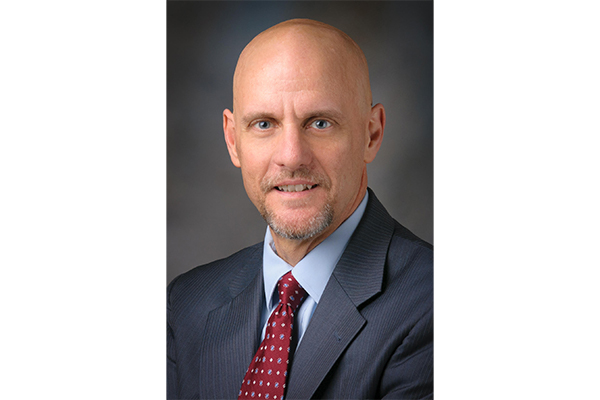President Donald Trump announced Friday his intent to nominate an executive at the University of Texas MD Anderson Cancer Center as the 24th commissioner for the Food and Drug Administration, according to the White House website.
Stephen Hahn, a chief medical executive, would be taking the place of former commissioner Scott Gottlieb, who left in April. By intending to nominate Hahn, Trump is passing over Norman Sharpless, who has received support to be the next commissioner from four past commissioners in a September letter addressed to Trump. Sharpless has been serving as the acting commissioner.
As FDA commissioner, Hahn would oversee policy for current health issues, such as the opioid crisis and recent cases of lung disease from vaping electronic cigarettes, as well as the regulation of everything from food to medical devices to over-the-counter drugs. Hahn has no policy experience, but several groups and authorities have commended his nomination.
“I’m pleased that @POTUS has announced his intent to nominate Stephen Hahn to lead the @US_FDA,” tweeted Alex Azar, the secretary of Health and Human Services. “Stephen is a talented, experienced leader whose scientific accomplishments make him well prepared to lead FDA in its vital public health mission.”
Azar also tweeted that while Hahn prepares for the position, assistant secretary for health Brett Giroir will act as the FDA commissioner. The Federal Vacancies Reform Act requires those serving in an acting position to serve for no more than 210 days, which was Friday for Sharpless. According to an Health and Human Services statement Friday, Sharpless will be returning to his role as the director of the National Cancer Institute.
Hahn specializes in lung cancer and sarcoma, according to MD Anderson’s website. He served as the chair for the department of radiation oncology, or radiation therapy for cancer, from 2015 to 2017 and was appointed as deputy president and chief operating officer in 2017. He was promoted to chief medical executive a year later, according to the website.
Hahn is credited with pulling the center out of financial loss and ethical controversies caused by former president Ronald DePinho. According to MD Anderson, DePinho resigned in 2017 after the 2016 UT System Monthly Financial Report found the center lost $405 million over 10 months.
Hahn has not yet been confirmed by the U.S. Senate, and it is not clear when the confirmation will occur.



















